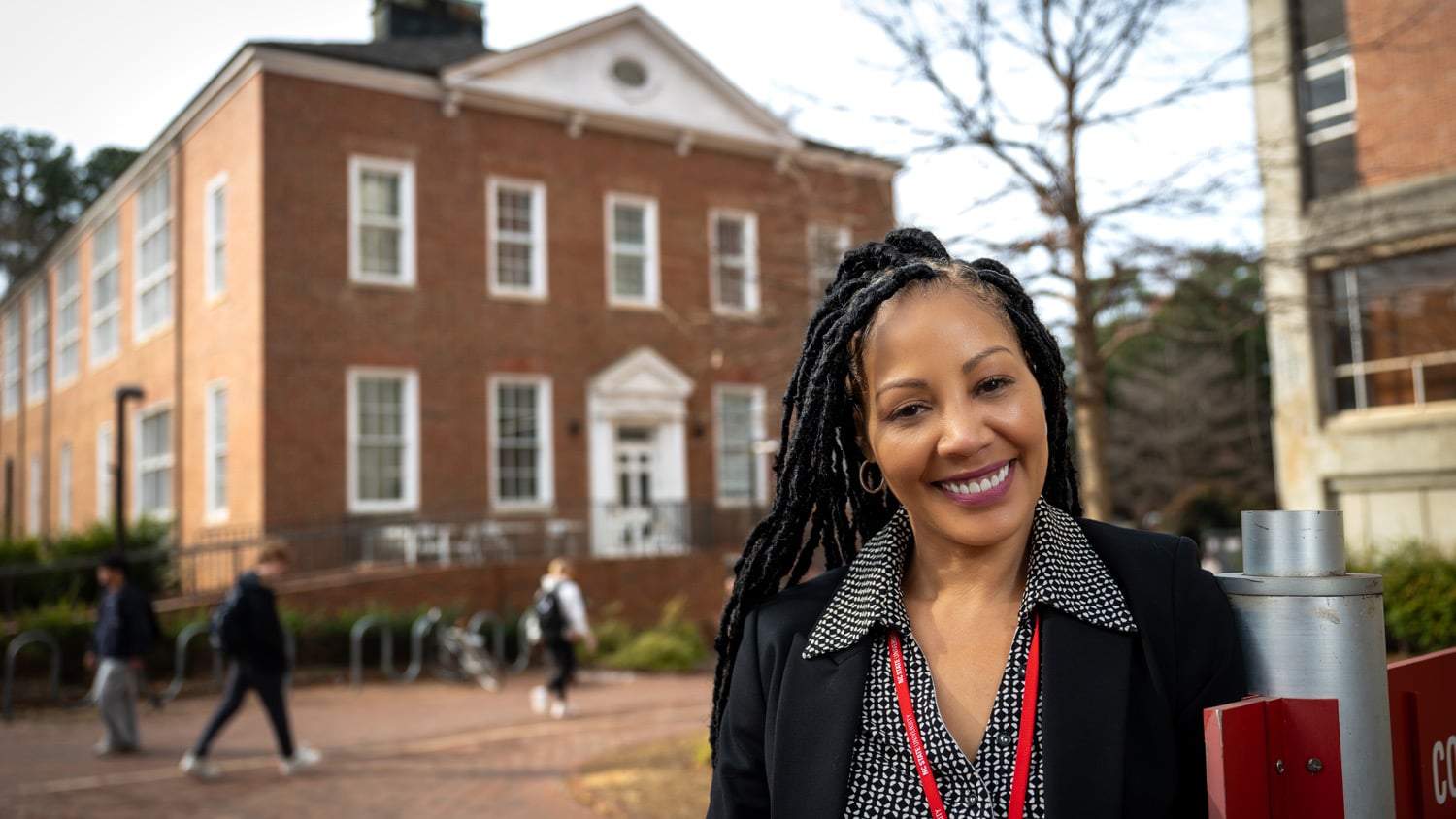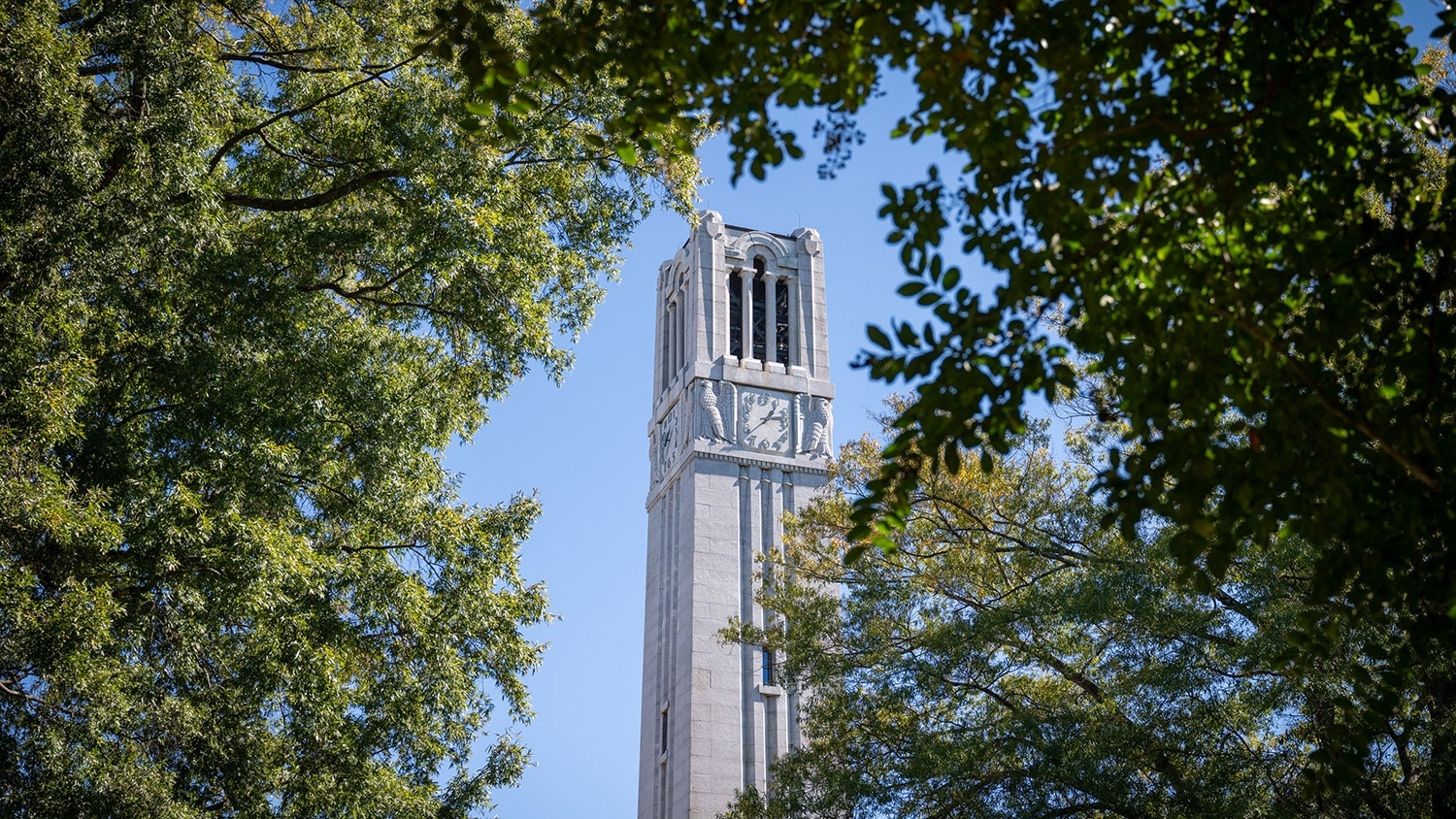Supporting Sciences Students, Right Where They Are
Nicole Johnson, the new full-time embedded counselor at the College of Sciences, is ready to support students on their personal and academic journeys.

Ever since her own days as a college student, Nicole Johnson knew she wanted to work at a college campus as a therapist. After over 20 years in the mental health services field, she’s reaching that goal. In December 2024, Johnson started her role as the full-time embedded counselor for the College of Sciences.
It may be her first time working on a college campus, but Johnson is no stranger to working with science students. At her private practice, she worked with students who were enrolled in or had recently graduated from science programs.
“I’ve worked with people that were dealing with the challenges of work-life balance, financial obligations and the general transition after leaving school,” Johnson said. “I want to bring that experience into this position and make a difference for our students.”
Caring for the Individual
Johnson hopes her regular presence in college administrative offices in the Bureau of Mines building will help students feel more comfortable seeking out the resources they need.
“I’ve always felt that the relationship is the biggest vehicle for any clinical work, and you’re able to foster some really unique relationships by just being present,” Johnson said. “Campus Health and the Counseling Center are loaded with amazing professionals, but sometimes it can be intimidating. Having someone in the college who understands the culture will break down some of those barriers. That’s what I’m hoping to do here.”
Students who walk through Johnson’s door can expect to be greeted with a warm smile and enter into a relaxed environment.
“I like to think of my work like this: Your life is a forest and I’m the compass,” Johnson said. “I’m simply a tool to help you get to where you want to go.”
Johnson employs a number of techniques to help people achieve their goals, including cognitive behavioral therapy, dialectical behavioral therapy and acceptance commitment therapy. The latter refers to helping people practice acceptance while making sure they are honoring their values.
“That can be tough, especially when we’re young and we have a lot of pressure from different areas in our lives,” Johnson said. “I can also appreciate the fact that it’s a lot more stressful to be a student now than when I was in school. There’s more pressure, more competition.”
“When you come in to meet with me, I want you to know that you’re going to be prioritized.”
In an environment with competing priorities, Johnson encourages students to make time for themselves.
“Self-care is not being selfish,” she said. “In situations where you have so much coming at you, it’s really important for you to do a temperature check and figure out what you need at that moment to restore yourself.”
Johnson is ready to help students find that balance.
“When you come in to meet with me, I want you to know that you’re going to be prioritized,” she said. “Your needs are going to be prioritized.”
Honoring Mental Wellness
Johnson, who moved to North Carolina from the Washington, D.C., area in 2019, was drawn to NC State due to its intentional focus on mental health and student support. As the college’s new embedded counselor, she’s looking forward to contributing to NC State’s culture of prioritizing wellness.
“Mental wellness is just as important as physical wellness,” Johnson said. “Remember, you don’t only go to the doctor when you’re sick. Sometimes we just want to do a check up. We don’t have to be in crisis to honor our mental wellness. We don’t have to wait until we get to the end of our rope to seek support.”
Johnson is looking forward to meeting students through informal “Let’s Talk” sessions, which she offers twice a week in her office on the first floor of the Bureau of Mines. These confidential consultations — although not formal therapy or crisis intervention — offer a space for students to talk through concerns, ask questions and get connected with resources.
“‘Let’s Talk’ sessions are a time for students to come in and be able to unwind and find a safe space,” she said.
Johnson also provides ongoing care and plans to visit classes at the request of faculty members to speak about mental health and related resources. She and Jamila Simpson, associate dean for college success and well-being, put on “Mindful Monday” and “Wellness Wednesday” events, as well as mental health workshops covering topics like perfectionism, social isolation and mitigating anxiety and depression.
Johnson also wants to remind students she’s not the only resource available if they need help. NC State offers a wide variety of resources to support students’ academic journeys and personal well-being.
“Don’t be afraid to ask for help,” Johnson said. “There are so many staff members who can point you in the right direction, and even your peers. I know it can be scary, but seeking support can make a difference.”
- Categories:




